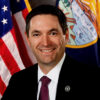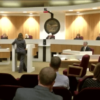Lawmakers Demand Big Tech’s Disinformation Strategies Ahead of Election
On Wednesday, the Senate Intelligence Committee pressed executives from major tech companies—Alphabet, Meta, and Microsoft—on their efforts to prevent election interference, with a particular focus on disinformation. As the U.S. election draws near, lawmakers raised concerns about how foreign actors, particularly from Russia, China, and Iran, may attempt to spread propaganda and manipulate public opinion.
The hearing served as a platform for tech leaders to explain the steps their companies are taking to mitigate these risks. Committee Chairman Mark Warner emphasized the importance of educating the public about ongoing threats. “Bad actors,” he explained, are still actively using mis- and disinformation tactics to influence voters in the U.S., particularly in the run-up to November’s election.
Lawmakers posed questions about how tech platforms are filtering out misleading or false news sources, as well as how they are helping users discern fact from fiction. Microsoft’s vice chair and president, Brad Smith, outlined how the company is trying to prepare the American public for potential risks. He stressed the need for voters to critically evaluate the information they come across before casting their ballots. “We do that by informing them, encouraging them to check what they see, to recheck it before they vote,” Smith said. He also warned that the most critical period for disinformation would likely come in the final 48 hours before the election, citing a key lesson from last year’s Slovakian election. In that case, a deepfake video maligning one of the candidates went viral just before voters headed to the polls.
Smith further revealed that Microsoft had recently detected a Russian group spreading a falsified video of Vice President Kamala Harris. The video showed Harris making statements she had never actually said, demonstrating the sophisticated tactics foreign actors are using to interfere with U.S. elections.
Warner made it clear that the committee expects tech companies to provide more information in the coming days. He specifically asked for details on advertising revenue from foreign actors, especially from Russia. Warner also wanted to know how much money these bad actors are earning through ads on social media platforms and what capacity these companies have to moderate and control disinformation as Election Day nears. Given the expected rise in misleading content, Warner stressed the need for tech platforms to scale up their efforts to prevent election-related interference, noting that as the election approaches, disinformation efforts are likely to intensify.
As election interference remains a key concern, the committee’s inquiry is part of broader efforts to ensure that the integrity of U.S. elections is not compromised by foreign disinformation campaigns. The testimony from these tech executives highlighted both the challenges and the strategies being put in place to safeguard voters from misleading content.










